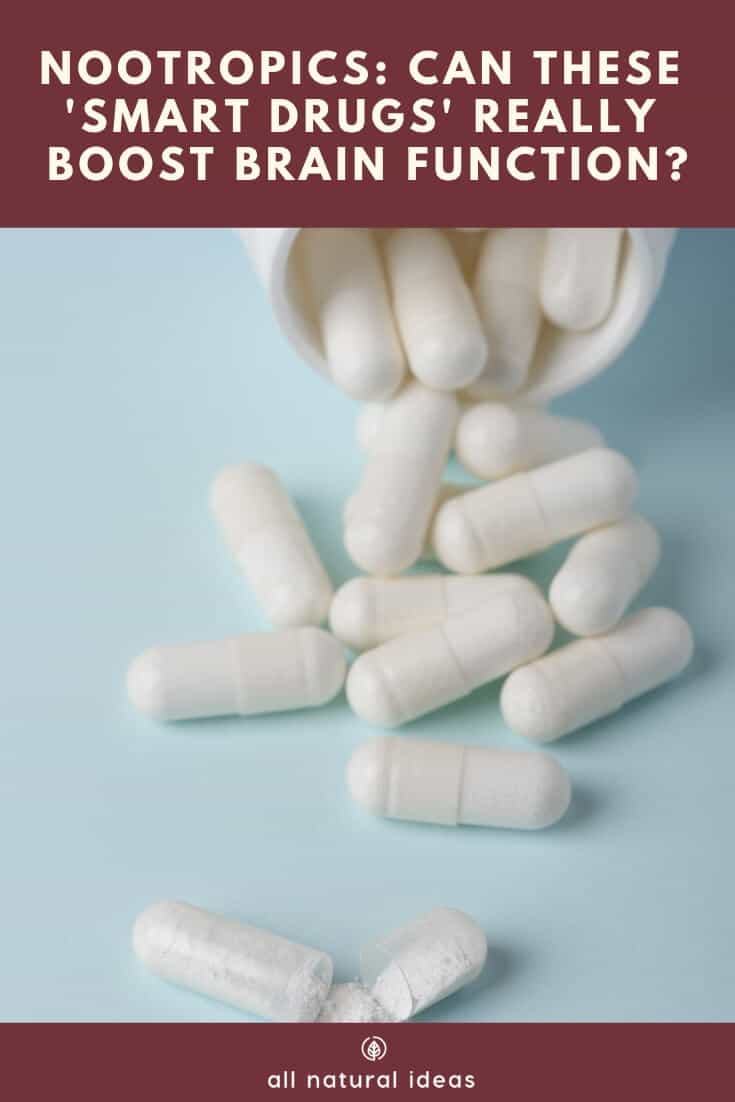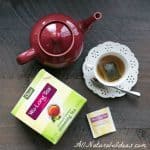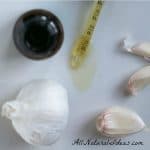Nootropics are sometimes called “smart drugs,” “brain boosters” or “memory enhancers”. Is improving concentration, memory and mental alertness as simple as popping a pill?

What’s your interest in brain enhancing supplements? Are you hoping to prevent Alzheimer’s disease and dementia? (One in ten people age 65 and older have it. SOURCE)
Or are you just hoping to study longer or work uninterrupted for hours in a row, writing the next great American novel?
Perhaps you have trouble focusing and have heard that nootropics can help if you have ADHD (attention deficit and hyperactivity disorder)?
Regardless of your interest in brain-boosting supplements, here’s some basic information about them….
What Are Nootropics?
The simplest way to describe them are compounds that increase mental function. In theory, then, a nootropic improves memory, motivation, concentration, and attention span.
There are four main types:
- Synthetic (lab-created) over-the-counter supplements
- Pharmaceutical prescriptions (an example: Ritalin, for managing ADHD)
- Herbal supplements
- Natural ingredients
What are the benefits?
Besides the benefits already mentioned, there might be others, including:
- Vision enhancement
- Alleviate nausea
- Improve mood (and reduce anxiety)
- Reduce stress hormones
Do They Work?
It depends who you ask.
There’s lots of anecdotal evidence (customer reviews of supplements) claiming they work. For example, here’s one review for a supplement called “Adrafanil,” which was discovered by French researchers in 1974:
“It works like a charm, after taking twice one pill in the morning, I feel completely cleared from the brainfog and super focused.”
However, the research proving they work is limited.
One source that does conclude they work is this research in the peer-reviewed journal, Evidence-Based Complementary and Alternative Medicine (EBCAM). The co-authors of the report write:
“Natural nootropics are proven in boosting the brain function while at the same time making the brain healthier.”
To be clear, though, there’s no conclusive research that says brain drugs can cure or prevent Alzheimer’s or other forms of dementia.
Nonetheless, sales of brain enhancing supplements continue to rise….
How Do Nootropics Work?
If you really want to know how they work, you’ll need some advanced-level understanding of biochemistry. The supplements work by acting on α-amino-3-hydroxy-5-methyl-4-isoxazole propionate (AMPA) receptor, turnover of phosphatidylinositol, and activity of phosphatase A2.
Say what?
OK, here’s the somewhat simple version of how they work. Brain-boosters do the following:
- Increase blood circulation to the brain (by opening blood vessels)
- Provide nutrients to the brain
- Boost oxygen flow to the brain
- Release dopamine (carries signals between brain cells)
- Reduce inflammation in the brain
- Protect the brain against toxins
- Stimulate production of new brain cells
- Makes choline (nutrient involved in brain-cell communication) more available
- Improves function of brain synapses (brain cells communicate across synapses)
As you can see, this is quite an impressive laundry list of functions. But even if these functions are one day accepted as fact by the mainstream medical community at large, keep the following in mind….
If you’re thinking about taking smart drugs, they have not been studied for a long time. As a result, their safety for long-term use has yet to be confirmed.

Why Do People Use Nootropics?
You can blame it on modern stress. Staring at screens all day for work robs the brain of nutrients. As the above-mentioned research in EBCAM states, the brain receives around 15% of the body’s total blood supply and oxygen. This, despite the fact that the brain only weighs about 3% of the body’s total weight.
To function at the top of its game, your brain requires a steady supply of energy. Crashing for a final exam or preparing a report for work under a tight deadline? Then your brain needs a steady, continuous supply of oxygen and nutrients.
This is one reason why people use smart drugs.
Other people use them because they have trouble concentrating in the first place.
Regardless of why people use them, consider this….
Neuorns are nerve signals. They send and receive messages from the brain. Unlike other cells in your body, say, skin cells, your body does not reproduce neurons; they are irreplaceable. But some nootropics may help stimulate new neuron cells.
In other words, your body doesn’t automatically replace neuron cells. However, some chemical compounds may help replace the ones you’ve lost.
Nootropics List
There are different classes of so-called smart drugs. The first kind listed here are synthetic and are known as “pyrrolidinone derivatives.” These derivatives include the following:
- Piracetam
- Oxiracetam
- Aniracetam
- Promiracetam
- Nefiracetam
Again, understanding how some of these nootropics work requires some very deep-level understanding of brain chemistry and biology. Explaining the differences between these lab-produced compounds is also not for the beginner.
Here’s the basics to know….
The first one on the list above, piracetam, is the first so-called racetam (take a look at the list above; the compounds all end with ‘racetam’).
Piracetam has a reputation among biohackers (those who try to improve their health through experimentation with supplements, diet modification, exercise, etc.) as being the weakest racetam. However, weakest may be best for those who want to try a nootropic for the first time.
Piracetam has not yet been approved by the FDA. However, because it functions like the neurotransmitter, GABA, it may help treat dementia.
The research in EBCAM says pyrrolidinone derivatives enhance the learning process, diminish impaired cognition, and protect against brain damage.
However, not everybody is convinced it works. The popular physician, Dr. Andrew Weil, says, “I can tell you that piracetam is not a recognized brain nutrient and that there’s not much scientific evidence to support the claims made for it. I am aware that it is available by prescription in Europe but that doesn’t mean that piracetam is effective. You can’t buy it over-the-counter in the United States either.”
Which Natural Brain Supplements Are The Best?
If you absolutely plan on trying natural brain supplements known as nootropics, there are herbal ingredients that may help your noggin function more effectively.
Most herbal remedies that are considered beneficial for the brain have been used for thousands of years. Chinese medicine and Ayurveda (from India) both use anti-aging herbs. A handful of these herbs include:
- Chinese Club Moss
- Ashwagandha
- Ginkgo Biloba
- Bacopa Monnieri
- Panax Ginseng
- Rhodiola Rosea
Let’s take a look at ginkgo. It’s perhaps one of the best-known herbs. For decades, it’s been thought to enhance memory. In fact, research in EBCAM says it can be useful for treating brain disorders. “Ginkgo biloba also has been listed under group of antidementia drugs.” It helps prevent harmful plaque in the brain from accumulating. This harmful plaque is one cause of Alzheimer’s disease.
Amino Acids for Brain Health
You may think of amino acids for helping build muscle. That’s because amino acids are the building blocks of protein. And you need to repair muscle tissue after a strenuous workout by eating dietary protein sources such as eggs.
However, amino acids also can boost brain function. They help produce neurotransmitters, which enable brain cells to communicate. You may be familiar with some of the following neuortransmitters: adrenaline, serotonin, and dopamine. Without enough amino acids, your brain would struggle to activate these important chemical messengers.
Some examples of amino acids that can boost brain function are GABA (which has a calming effect); carnitine; l-theanine; 5-HTP (which helps form other important neurotransmitters that make you feel happy and calm); and l-tyrosine.
Another brain booster that’s all-natural is choline. Acetylcholine (ACh) is a neurotransmitter. By now, you can see how important neurotransmitters are to brain function. Well, what choline does is improve ACh function. And all it takes is a tiny boost of ACh to help you focus better.
In order for any brain supplement to work, it has to cross the blood-brain barrier. This is a filtering mechanism in which the capillaries that carry blood to the brain (and spinal cord tissue) block the passage of certain substances. If the supplement doesn’t cross the blood-brain barrier it won’t work very well.
What Supplements Help Improve Memory?
According to ConsumerLab.com, an independent organization that tests supplements for purity and accuracy in labeling, says these are best:
- Huperzine A
- Vinpocetine
- Acetyl-l-carnitine
- CoQ10
- Cocoa
The best thing to keep your brain function sharp, according to Dr. Weil is taking on new mental challenges. “The best mental workouts I know are learning a new computer operating system and learning a new language,” says Dr. Weil on his website.
But if you want to take a supplement, the best nootropic might be good old-fashioned fish oil–Dr. Weil recommends taking 1 to 2 grams a day–and drinking a cup of coffee or two.





